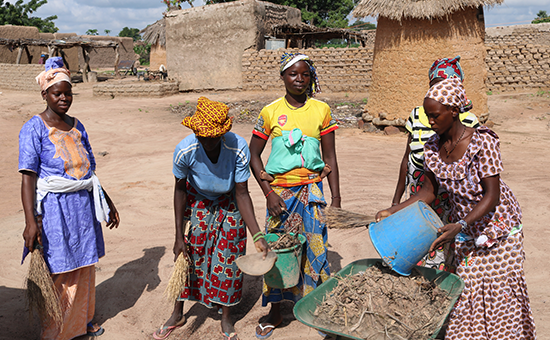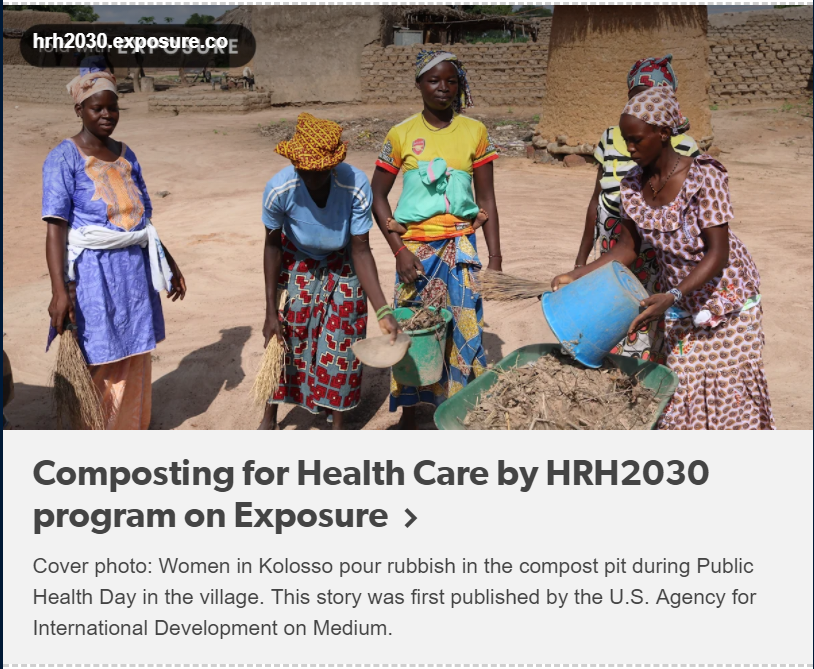
06 Jan Composting for Health Care: How a women’s group in Mali sustainably funds maternal and child health services in their community
It’s 7 a.m. on a Friday in the village of Kolosso, in Mali’s Segou region, and the sun is up. Members of the Benkadi women’s group have come together in the public square with buckets, shovels, and wheelbarrows to collect garbage.
They aren’t just cleaning the village. These women are gathering materials to make and sell compost, a valuable commodity in their region, and the profits will be used to fund improved health care access for mothers and babies in their community.
These funds are necessary because even though a new maternity center opened in Kolosso four years ago — reducing the distance needed to travel to access health care — most women in Kolosso could not afford its services.
In our newest photo essay on the Exposure platform, we take a look at how women’s access to the health center has improved, with support from the HRH2030 Mali program. Aligning with the Government of Mali’s priority of improving maternal and child health, the program has developed a community approach to tap into the power of established women’s groups to increase access to essential maternal, newborn, and child health care services.
LINK TO EXPOSURE






